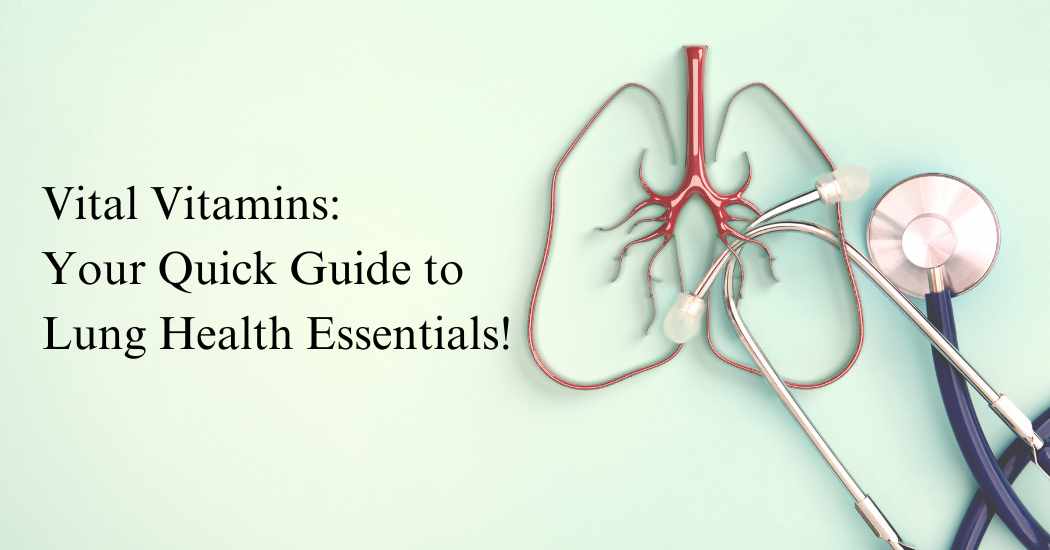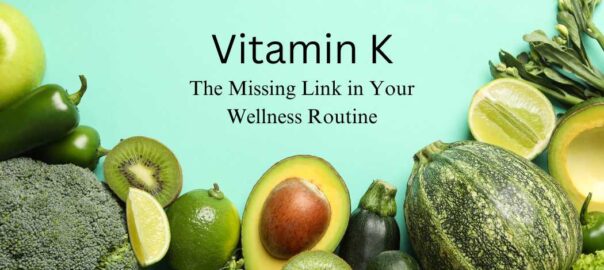
In today’s fast-paced world, maintaining optimal lung health is crucial for overall well-being. Our lungs play a vital role in supplying oxygen to the body and removing carbon dioxide, making them essential for survival. To support lung function and health, incorporating specific vitamins into your diet can make a significant difference. In this comprehensive guide, we’ll explore the essential vitamins necessary for maintaining healthy lungs and how you can incorporate them into your daily routine.
Understanding Lung Health
Before diving into the specifics of vitamins, it’s essential to understand the basics of lung health. The lungs are a pair of spongy organs located in the chest that facilitate the exchange of oxygen and carbon dioxide during breathing. Factors such as air pollution, smoking, respiratory infections, and poor dietary habits can adversely affect lung function.
Importance of Lung Health
Healthy lungs are vital for overall well-being and quality of life. Proper lung function ensures adequate oxygen supply to all cells in the body, supporting energy production, brain function, and immune response. Additionally, maintaining lung health reduces the risk of respiratory illnesses and chronic conditions such as asthma, chronic obstructive pulmonary disease (COPD), and lung cancer.
Essential Vitamins for Lung Health
Certain vitamins play a crucial role in supporting lung function and maintaining respiratory health. Incorporating these vitamins into your diet can help protect against oxidative damage, reduce inflammation, and support the body’s natural defense mechanisms.
Vitamin A
Vitamin A is known for its role in maintaining healthy vision, but it also plays a significant role in lung health. This fat-soluble vitamin supports the mucous membranes that line the respiratory tract, helping to trap harmful substances and prevent infections. Good dietary sources of vitamin A include carrots, sweet potatoes, spinach, and kale.
Vitamin C
Vitamin C is a powerful antioxidant that supports immune function and helps combat oxidative stress in the lungs. Research suggests that vitamin C may reduce the risk of respiratory infections and alleviate symptoms of conditions such as asthma and bronchitis. Citrus fruits, bell peppers, strawberries, and broccoli are excellent sources of vitamin C.
Vitamin E
Like vitamin C, vitamin E is a potent antioxidant that helps protect lung tissue from damage caused by free radicals. It also plays a role in reducing inflammation and supporting immune function. Incorporating foods rich in vitamin E, such as nuts, seeds, avocados, and leafy greens, can promote lung health.
Vitamin D
Vitamin D plays a crucial role in immune regulation and may help reduce the risk of respiratory infections and inflammation. Adequate vitamin D levels have been associated with improved lung function and a lower risk of conditions such as asthma and COPD. Sunlight exposure, fatty fish, fortified dairy products, and supplements are sources of vitamin D.
Incorporating Vitamins Into Your Diet
Now that we’ve covered the essential vitamins for lung health, let’s explore how you can incorporate them into your daily diet for optimal respiratory support.
- Consume a Balanced Diet: Focus on eating a variety of nutrient-dense foods, including fruits, vegetables, whole grains, lean proteins, and healthy fats.
- Prioritize Vitamin-Rich Foods: Include foods rich in vitamins A, C, E, and D in your meals and snacks to support lung health.
- Consider Supplements: If you have difficulty meeting your vitamin needs through diet alone, consider taking supplements under the guidance of a healthcare professional.
- Stay Hydrated: Adequate hydration is essential for maintaining healthy mucous membranes in the respiratory tract. Aim to drink plenty of water throughout the day.
Conclusion
Maintaining optimal lung health is essential for overall well-being and quality of life. By incorporating key vitamins into your diet and adopting healthy lifestyle habits, you can support respiratory function and reduce the risk of respiratory illnesses. Prioritize nutrient-rich foods, stay hydrated, and consult with a healthcare professional for personalized guidance on supporting lung health.
FAQs (Frequently Asked Questions)
While supplements can help fill nutrient gaps, it’s best to obtain vitamins from whole foods whenever possible for optimal absorption and effectiveness.
In some cases, high doses of certain vitamins, such as vitamin A, may have adverse effects on lung health. It’s essential to follow recommended dietary guidelines and consult with a healthcare professional.
Smoking can deplete levels of essential vitamins, such as vitamin C, in the body due to increased oxidative stress. Quitting smoking and adopting a nutrient-rich diet can help replenish vitamin levels.
While vitamin C and vitamin D have shown promise in supporting lung health, it’s essential for individuals with asthma to work with their healthcare provider to determine the best approach for their specific needs.
Yes, deficiencies in vitamins such as vitamin C, vitamin D, and vitamin E may weaken the immune system and increase susceptibility to respiratory infections. Maintaining adequate vitamin levels through diet and supplementation can help support immune function.











